The project aligns with Europe's commitment to climate leadership, including the ambitious targets of reducing emissions by 55% by 2030 and achieving overall climate neutrality by 2050.
In this scenario, cities play a crucial role. Although they occupy only 4 percent of EU territory, they are home to 75 percent of the population and consume large amounts of energy, generating a significant share of CO₂ emissions. Accelerating the decarbonization of urban spaces is therefore essential for the environmental, social, and economic well-being of European communities.
The NetZeroCities project is coordinated by Climate-KIC, and brings together 34 leading city networks, research organisations, and urban stakeholders from 13 countries. For the Department of Design, Francesca Rizzo is the scientific coordinator and the research team consists of Marzia Mortati, Sabrina Bresciani, Emma Puerari, Tamami Komatsu, Beatrice Gobbo, Lucia Nogales, Angelica Gomez, Morgan Ricard, Rohit Mondal, Francesco Ripa, and Alessandro Deserti.
The project offers a service-oriented platform accessible to all cities through an online portal, that connects cities with expert guidance, solutions, and resources needed to meet climate neutrality goals inclusively. Through this platform, cities can access a comprehensive range of tools, expertise, and hands-on support, facilitating both immediate actions and long-term planning.
The project also organizes pilot programs, a Twinning Learning initiative and online courses open to all cities to foster peer-to-peer learning and help cities share experiences in their climate neutrality journeys.
NetZeroCities promotes a transformative and adaptive approach that highlights local characteristics and encourages collaboration between urban governance, industry, education, research, and civil society. The goal is to facilitate a just, equitable, and effective transition to more resilient and sustainable cities, thereby contributing to the achievement of the European Union's climate goals.
NetZeroCities. Accelerating cities' transition to net zero emissions by 2030
The research project, the Mutual Learning Events and the Cities Mission Conference
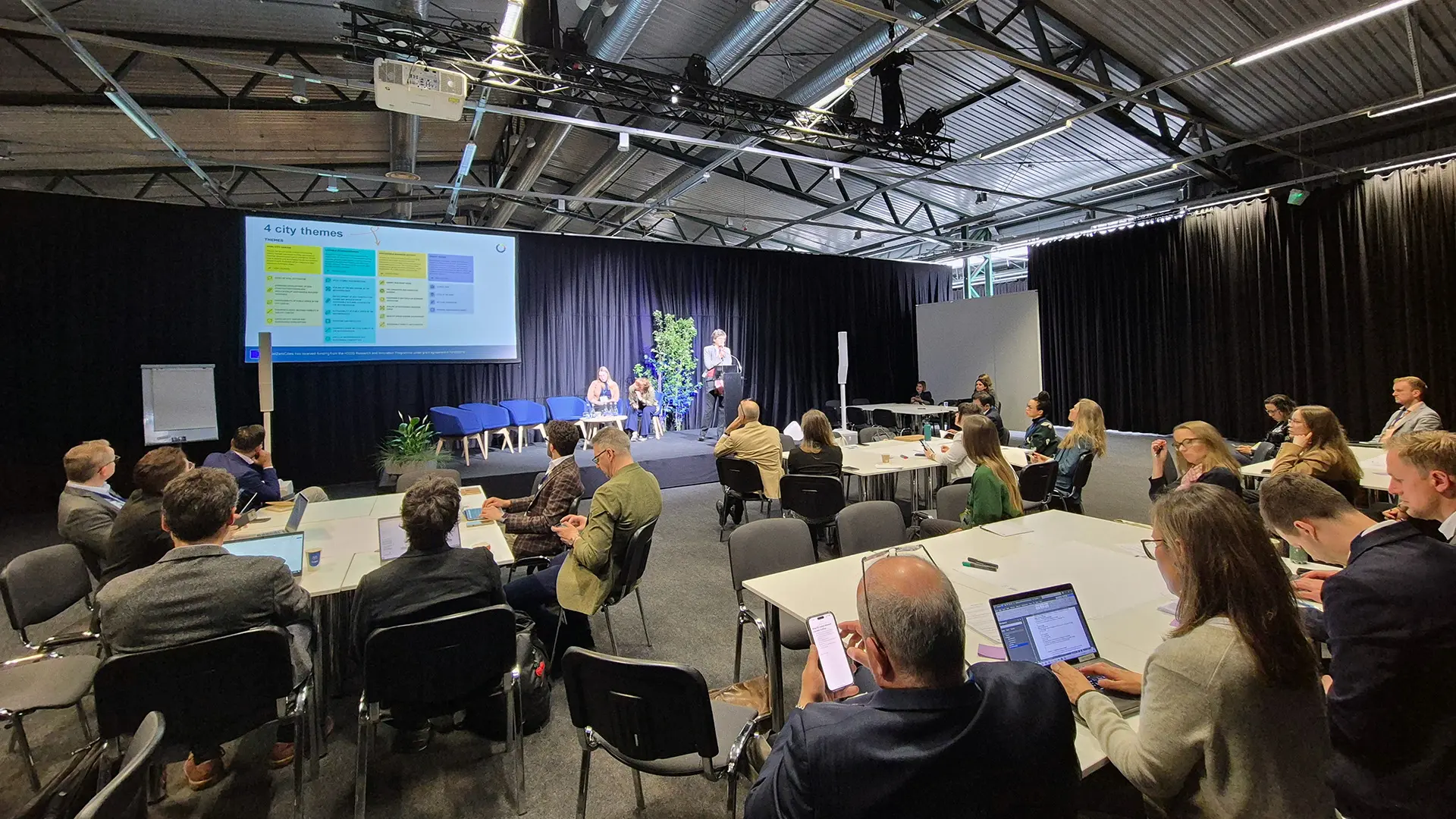
As part of the Horizon 2020 and Horizon Europe frameworks, NetZeroCities is a research project aimed at helping cities tackle the structural, institutional, and cultural obstacles preventing them from reaching climateneutrality by 2030. Climate neutrality is understood as achieving zero net greenhouse gas emissions by balancing these emissions with the planet's natural absorption of them.
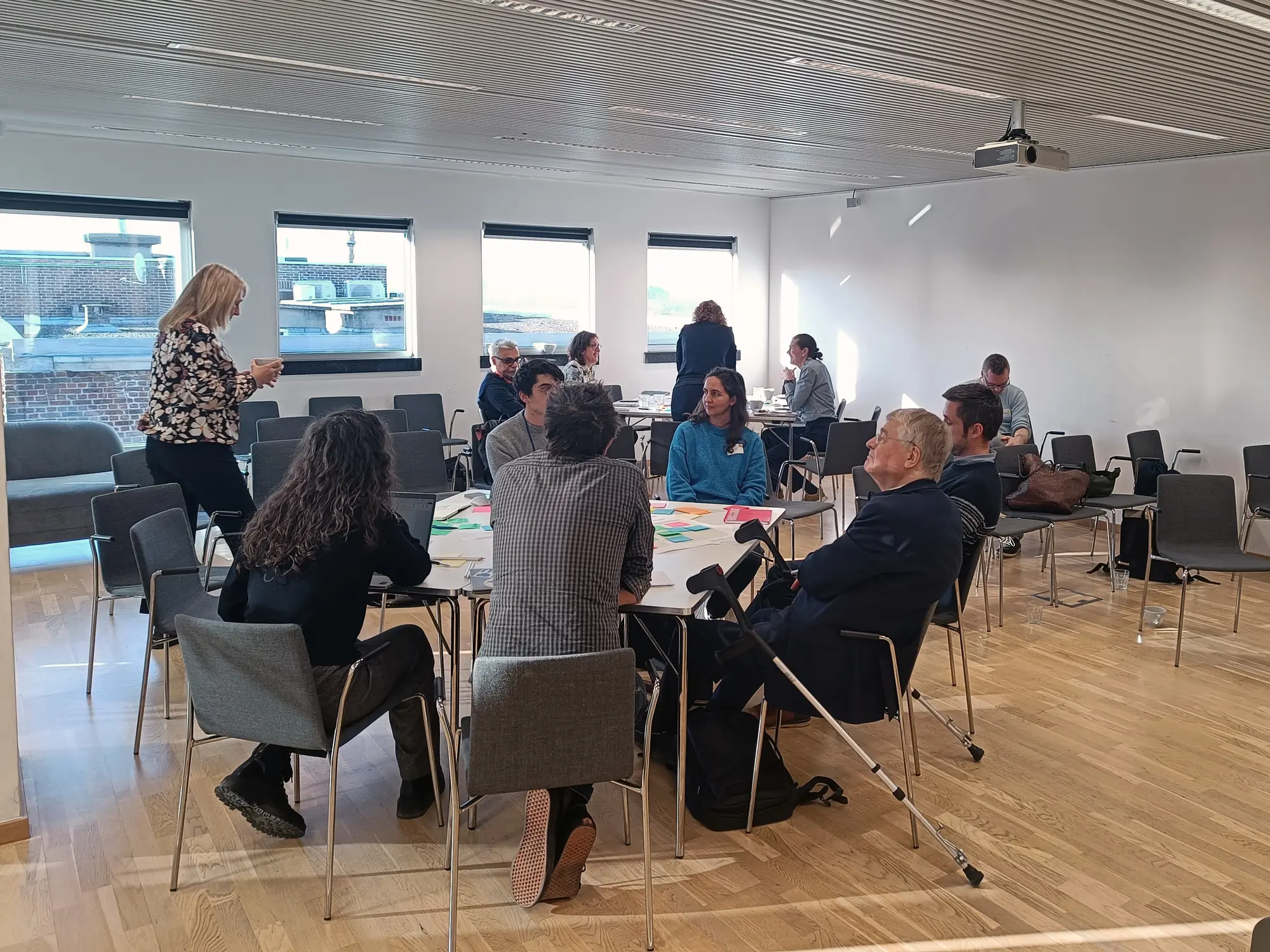
Mutual Learning events on the role of research: Unleashing a Research Agenda for the EU Mission Climate Neutral and Smart Cities
A series of Mutual Learning Events have been organized to explore the role of research in achieving climate-neutral and smart cities under the EU Cities Mission.
The first event was organized in Valencia during the Valencia Cities Climate Week, as part of the Cities Mission Conference on June 25th, 2024: in a full-day in-person event the Politecnico team gathered 50 researchers from the consortium and additional 28 universities and institutions. Researchers who support cities in experimenting with new decarbonization pathways shared their findings and discussed the research challenges they have encountered, providing a cross-disciplinary overview of research on urban climate neutrality.
Participants collaborated to develop a set of “Pathways toward a Research Agenda for the Mission Cities,” tackling key research topics, from governance to citizen engagement, and from behavioural change to funding for climate action. The event culminated in a presentation of the roundtable results to Rosalinde van der Vlies, Director of the Clean Planet Directorate in the European Commission’s Directorate-General for Research and Innovation, and Deputy Mission Manager of the Climate-Neutral and Smart Cities Mission.
The second event was held in a hybrid format at ERRIN offices in Brussels and online on 18 February 2025, building upon discussions from the first meeting, to emphasize the importance of research for the Mission, the development of a research agenda that will serve as a cornerstone for doctoral students, researchers, and scholars seeking to be at the forefront of climate-neutral cities and communities, and the initiation of a network of universities and research institutions eager to fuse critical scientific insights with pioneering policy and practice recommendations.
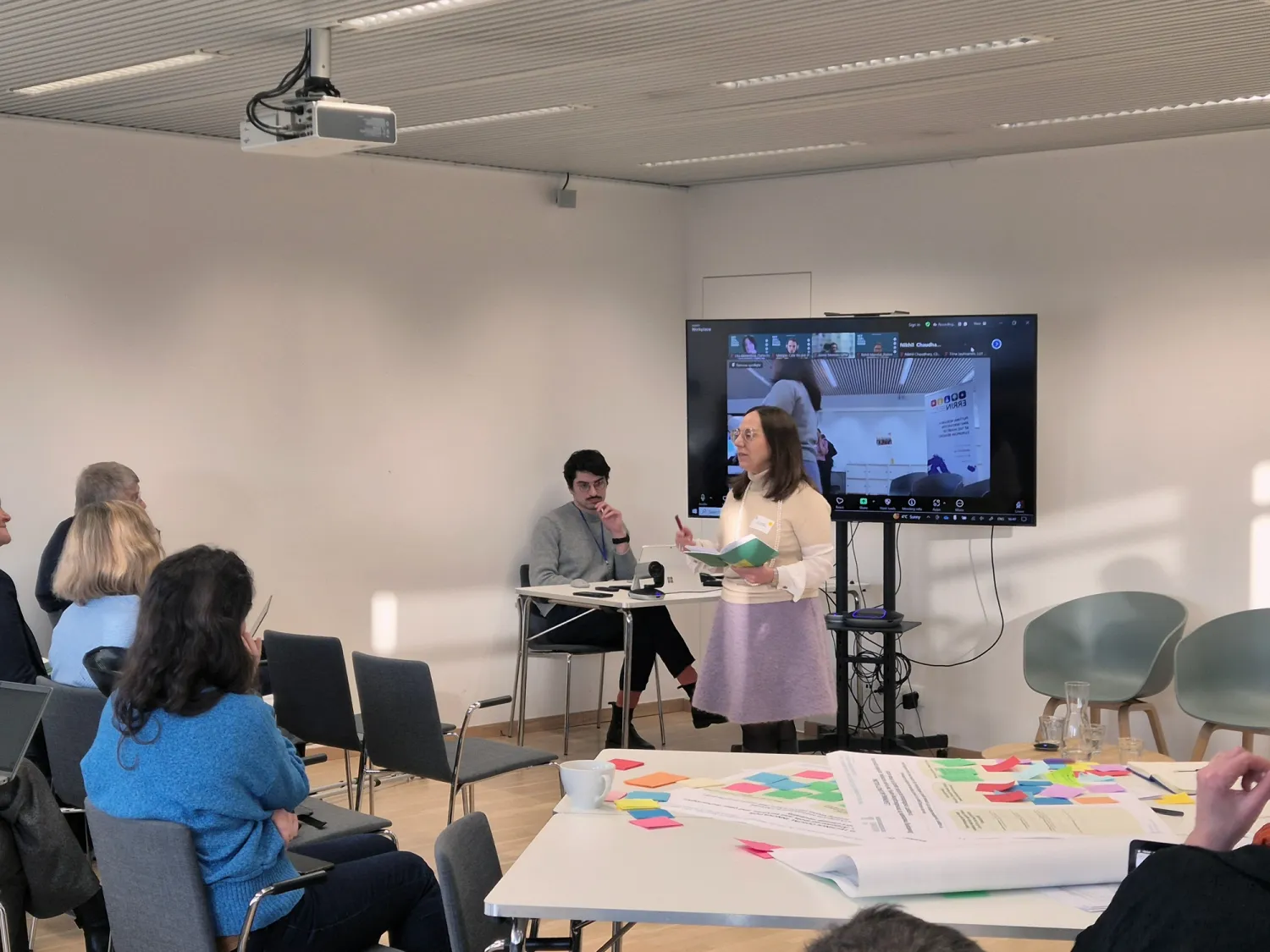
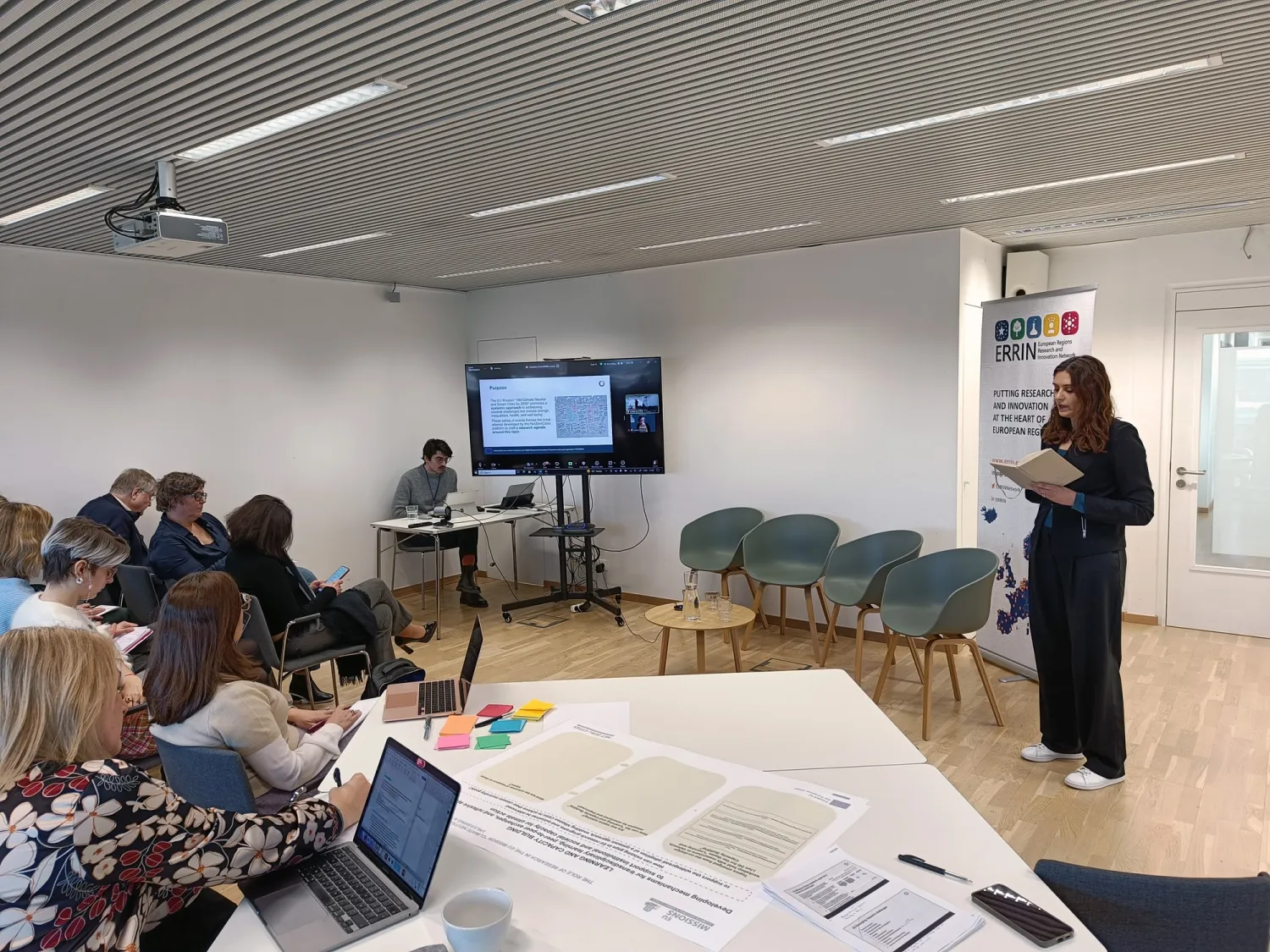
The Mutual Learning event opened with speeches from ERRIN and Climate-KIC, followed by a presentation from Louise Drogul (CESAER) highlighting the challenges of transdisciplinary research, complex governance, the need to strengthen research-practice links and foster concrete collaboration.
Key research themes from Valencia — governance and policy innovation, monitoring and assessment, digital and technological innovation, learning and capacity building, data infrastructures, and scaling — framed the discussion in Brussels. A panel featuring representatives from the European Commission, Cities Mission Board, and research institutions explored how EU policies can better integrate research with local implementation.
The event's second half focused on thematic discussions to address research gaps to help Mission Cities reach climate goals. Groups tackled various aspects:
- Scaling & Replication: Identified strategies for reinforcing capabilities, funding flexibility, and readiness in cities.
- Monitoring & Assessment: Emphasized the need for robust KPIs and innovative data procurement strategies.
- Data & Knowledge Infrastructures: Stressed data literacy, collection methodologies, and real-world applicability.
- Governance & Policy Innovation: Explored strengthening partnerships and aligning research with city needs.
- Digital & Technological Innovation: Discussed leveraging digital tools for stakeholder engagement and regulatory links.
- Learning & Capacity Building: Highlighted participatory research, societal readiness, and behavioral change strategies.
Facilitators synthesized insights, underscoring the necessity of mission-driven, collaborative research. Closing remarks from Wiebke Pankauke (European Commission DG RTD) and Markku Markkula (EU Committee of the Regions) reiterated the importance of aligning research with urban transformation efforts.
The event reinforced that cities are crucial drivers of climate neutrality, requiring systemic approaches, policy support, and collaborative research to scale successful innovations. Continued engagement across sectors will be key in advancing the EU's climate goals.
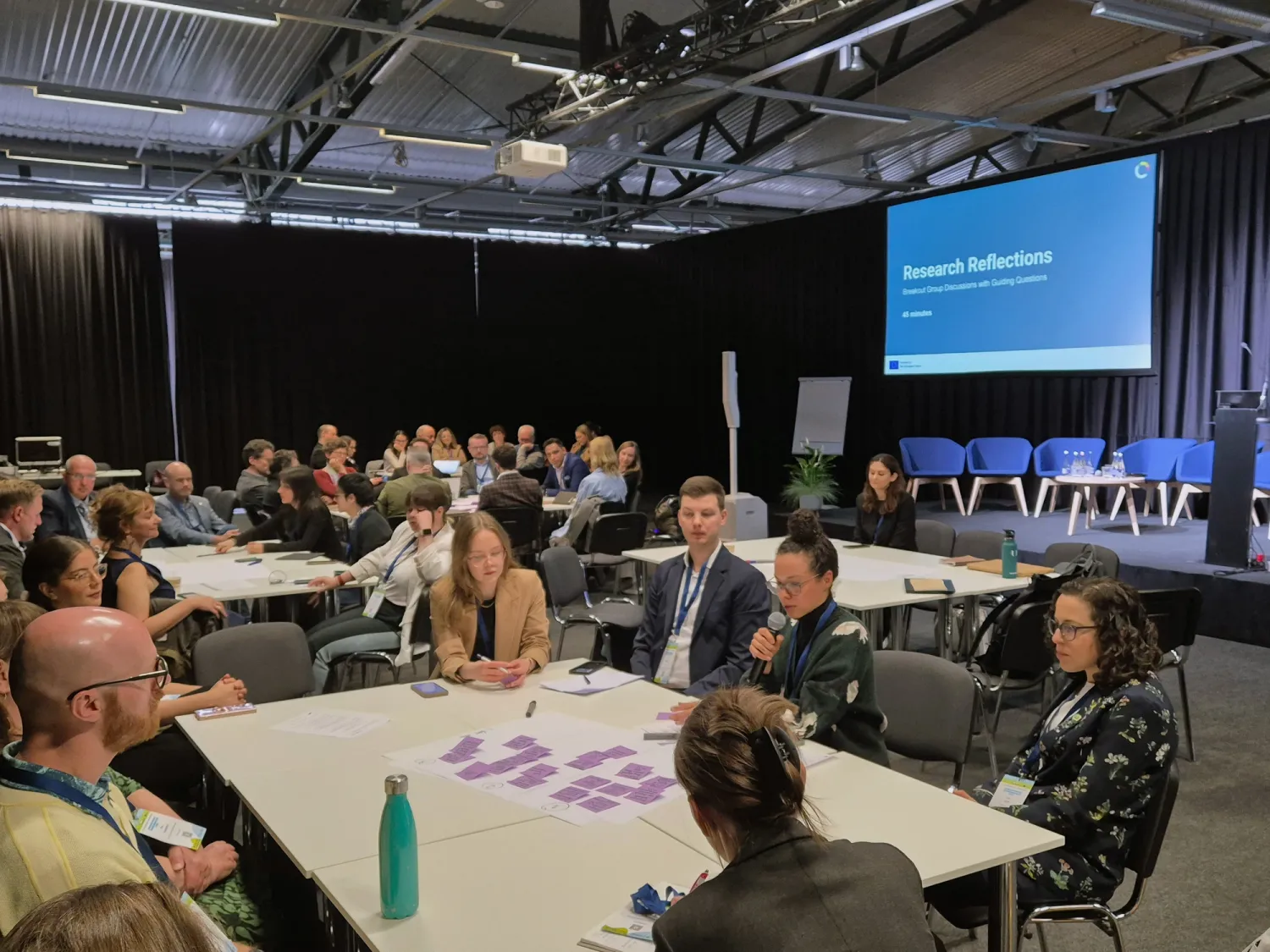
Co-creating a shared research agenda: the 2025 Cities Mission Conference
The third event recently took place during the fourth edition of the Cities Mission Conference in Vilnius, Lithuania, on 6-8 May 2025, which centered around the theme “Harnessing City Successes: Advancing Climate Action for 2030”, to spotlight the progress and ambition of Mission Cities and their partners as they strive to achieve climate neutrality by 2030. Organised by the European Commission and the Mission Platform, the conference brought together a diverse audience of city practitioners, political leaders, industry innovators, financial experts, civil society representatives, and European Commission officials.
The event featured a range of dynamic formats, including keynote addresses, interactive workshops, high-level political dialogues, and site visits, all designed to ensure engaging and impactful discussions.
The Politecnico team with the project coordinator Climate-KIC organized a co-creation session on “Turning knowledge into action” with a unique format that placed the cities’ point of view on research at the center of the stage. Officials of the city of Aacher, Turku and Eindhoven presented their positive experience of collaborating with local universities and research institutions to overcome challenges, scale up solutions, and adapt best practices to different local contexts for enahcing their work toward claimte neutrality. Most importantly, the event created a platform for dialogue to provide city officials a chance to voice what they need from research to move faster and further.
By bridging these worlds, NZC aims to unlock new ideas, strengthen collaboration, and accelerate the journey toward climate-neutral cities — together. As highlighted by one of the speakers:
«Research is an enabler that provides both the knowledge base and credibility needed to launch initiatives and convince politicians.»